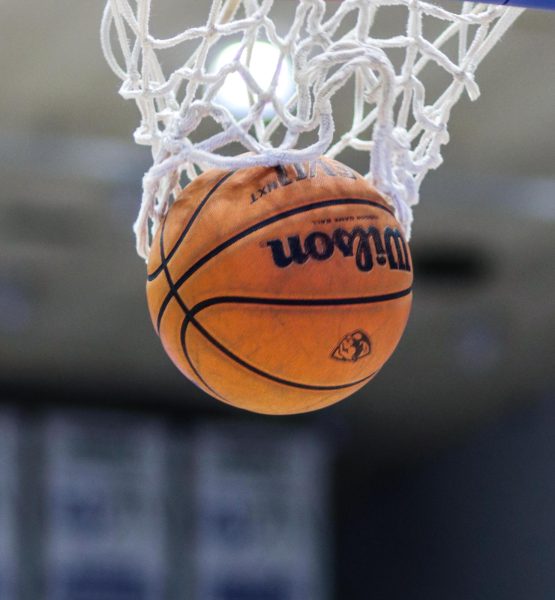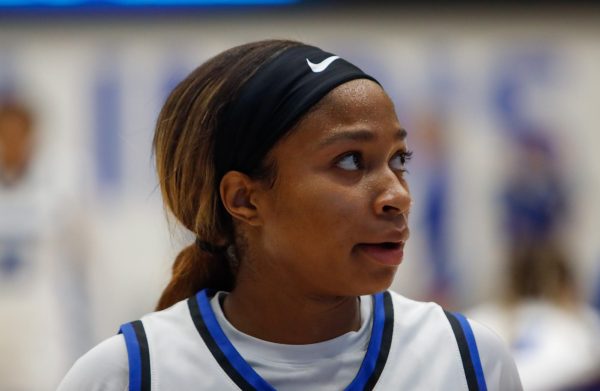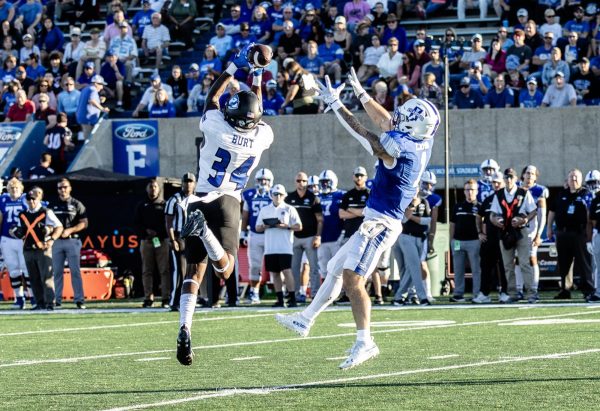An unlimited way to recruit
Brady Sallee remembers when he was an assistant coach for the women’s basketball team at East Carolina University.
One of Sallee’s coaching duties was to help with recruiting.
The current Eastern women’s basketball coach had been trying to get a prized recruit to commit to East Carolina for months.
The moment came when the recruit, better referred to by Sallee and his staff as “Red,” visited Greenville, N.C. for a football game.
Watching the football game while sitting next to Red, Sallee was on edge about whether she would come to help the school’s basketball program.
A few moments passed and Sallee heard a sound from his cell phone. He opened his cell phone and saw a text message that read: “Red goes to ECU!”
Sallee turned to his prize recruit, uncorking a smile with a sense of relief that had been lifted off his shoulders.
“It proves the point in differences in generations,” Sallee said. “Before, we were used to getting oral commitments. Now we’re getting this. The (text messaging) allows them to open their mouth without actually doing it.”
The 35-year-old Sallee can be counted on as one of the fans of text messaging, a craze that has given coaches and recruits loopholes.
NCAA rules limit coaches to one phone call per month to high school juniors and two per week to seniors.
But with no limit on text messages, it has given coaches the opportunity to “talk” to recruits through a different forum.
“It’s a big part of kids’ lives,” Sallee said. “Now-a-days, kids prefer to communicate through text. (Coaches) take advantage of that.”
While younger coaches like Sallee are more adept at using text messages, older coaches, like Eastern head football coach Bob Spoo, leaves it up to his assistants to incorporate the new technology.
“I don’t even use the Internet,” the 69-year-old Spoo said. “But, I know a lot of our coaches use (text messages). That’s just another way of communicating.”
For many athletes, text messaging has become more prevalent through the years, helping usher new avenues to a high-school athlete that may be undecided.
Some athletes prefer the intimacy of a phone call compared to text messaging, but realize the importance of both.
“To be honest, it doesn’t matter if you call or text,” Eastern sophomore running back Norris Smith said. “As long as you get noticed from coaches, that’s all that matters. But, I know a text message (from a college coach) will bright up a kid’s eye.”
It’s a phenomenon that has gotten bigger in college recruiting. It comes at a time where verbal communication is being pushed aside.
“I know a lot of kids in high school don’t like to be on the phone,” Eastern junior forward Bobby Catchings said.
When Catchings was playing basketball at Naperville Neuqua Valley High School, he doesn’t remember text messaging being as common as it is today.
“I kind of wish it was more prevalent,” Catchings said. “It would have been more convenient for me.”
With a vast amount of phone calls coming from college coaches each week, it makes it difficult for the athletes to enjoy their privacy.
“I would be out with my friends and a coach would call me,” Catchings said. “I would have to leave the room. It became annoying after a while.”
Text messaging isn’t the only new technological recruiting tool coaches are using. Even with e-mail still a part of the process, some coaches may worry if the e-mail actually gets received or that recruits may have changed their e-mail address.
The coaches then look if the recruit has their own web page.
“MySpace wasn’t as big a few years ago as it is now,” Smith said. “Coaches are leaving messages on MySpace so they can get a better relationship with the player. It’s big.”
With the unlimited amount of text and web page messages being sent, the NCAA has yet to sanction or pass any legislation in limiting the messages.
But it has been discussed.
Eastern women’s basketball center Rachel Galligan met with 10 other women’s basketball players during the Ohio Valley Conference Media Day in October to discuss certain policies.
One of which was text messaging.
“Everyone was more wrapped up in the number’s standpoint,” Galligan said. “It was more about the big bills for the parents, or not everyone having (unlimited text messaging) packages. None of us have really gone through it.”
The sophomore said the panel brushed aside the possibility of legislation, leaving it up to the NCAA.
However, many of the coaches and athletes know that the bigger it gets, the more likely something will be passed.
“I’m certainly open-minded to any kind of legislation,” OVC Commissioner Jon Steinbrecher said. “But, it becomes a situation of how do you monitor or how do you track? Then, after you figure that out, it becomes how do you enforce?”
Most athletes have admitted to wanting some sort of ban during school hours. But coaches say text messaging is now just part of recruiting life.
“You can argue whether it’s good or bad,” Sallee said. “But, that’s the landscape now.”






































































